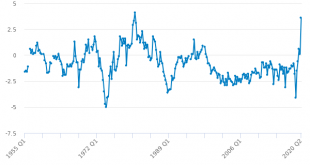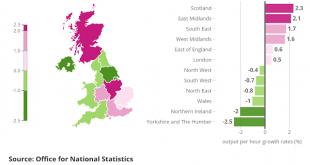It’s election season in the U.S., marred only by the minor complication of a criminal trial involving one of the candidates. Trump is on the campaign trail, and he is going big on trade policy. Or rather, trade lunacy.Here’s Gavin Bade at Politico attempting to explain Trump’s trade policy: Trump is considering a 10 percent universal import tariff, the former administration officials said, and one result of that policy could be to make the dollar weaker relative to other currencies. This is...
Read More »Policies Shifted Trade from China?
Has trade for materials, components, and product shifted away from China to be used in the U.S.? Maybe, maybe not, and maybe later. If you are going to manufacture in the US, you have to have the capability. It make take a bit to get up and ready. If we are buying product, etc. from Vietnam and Mexico, I would be planning a trip to each plant to see what the capabilities are. This is standard sourcing procedure. What is the capacity, conditions of...
Read More »Trade Incentives and Whoppers: A Finger Exercise
Nick Rowe was looking for the role of money in the Heuristic Macro Model, which is often used to introduce students to Trade economics. The problem he discovered is that there is only a role for money if there is friction in the model, and therefore a two-household (or household-firm or firm-firm) model makes money if not superfluous, then at least a poor substitute to direct barter. Following is a “finger exercise” for introductory economics the...
Read More »Trade, saving and an economic disaster
The UK is running a trade surplus. No, really, I am not joking. This is from the ONS's latest trade statistics release:The UK total trade surplus, excluding non-monetary gold and other precious metals, increased £3.8 billion to £7.7 billion in the three months to August 2020, as exports grew by £21.4 billion and imports grew by a lesser £17.5 billionIt's the first time the UK has run a trade surplus since the late 1990s: And if you were thinking this was because of the lockdown, you would...
Read More »Trade, saving and an economic disaster
The UK is running a trade surplus. No, really, I am not joking. This is from the ONS's latest trade statistics release:The UK total trade surplus, excluding non-monetary gold and other precious metals, increased £3.8 billion to £7.7 billion in the three months to August 2020, as exports grew by £21.4 billion and imports grew by a lesser £17.5 billionIt's the first time the UK has run a trade surplus since the late 1990s: And if you were thinking this was because of the lockdown, you would...
Read More »A tale of two halves
When the banks fell over, they knocked the stuffing out of the British economy. The UK’s productivity has been dismal ever since. Unemployment has fallen to historic lows and wages are rising, but productivity growth remains near zero. This “productivity puzzle,” as it is known, has had economists scratching their heads for best part of a decade.But UK productivity is a tale of two halves. Experimental statistics recently released by the Office for National Statistics (ONS) reveal widely...
Read More »A tale of two halves
When the banks fell over, they knocked the stuffing out of the British economy. The UK’s productivity has been dismal ever since. Unemployment has fallen to historic lows and wages are rising, but productivity growth remains near zero. This “productivity puzzle,” as it is known, has had economists scratching their heads for best part of a decade.But UK productivity is a tale of two halves. Experimental statistics recently released by the Office for National Statistics (ONS) reveal widely...
Read More »Indian Express — Explained: Why India has said no to regional trade pact RCEP
India believes that the RCEP trade deal doesn't provide adequate protection against possible surges of imported goods. In particular, India is concerned about cheap Chinese goods flooding the domestic market. The Indian ExpressExplained: Why India has said no to regional trade pact RCEP
Read More »Trade Policy — Uncertainty May Affect the Organization of Firms’ Supply Chains— Sebastian Heise, Justin R. Pierce, Georg Schaur, and Peter K. Schott
Global trade policy uncertainty has increased significantly, largely because of a changing tariff regime between the United States and China. In this blog post, we argue that trade policy can have a significant effect on firms’ organization of supply chains. When the probability of a trade war rises, firms become less likely to form long-term, just-in-time relationships with foreign suppliers, which may lead to higher costs and welfare losses for consumers. Our research shows that even in...
Read More »Bill Mitchell— Leading indicators are suggesting recession
In the last two days, some major leading indicators have been released for the US and Europe, which have suggested the world is heading rather quickly for recession. It seems that the disruptions to global trade arising from the tariff war is impacting on US export orders rather significantly. The so-called ISM New Export Orders Index fell by 2.3 percentage points in September to a low of 41 per cent. The ISM reported that “The index had its lowest reading since March 2009 (39.4 percent)”....
Read More » Heterodox
Heterodox




